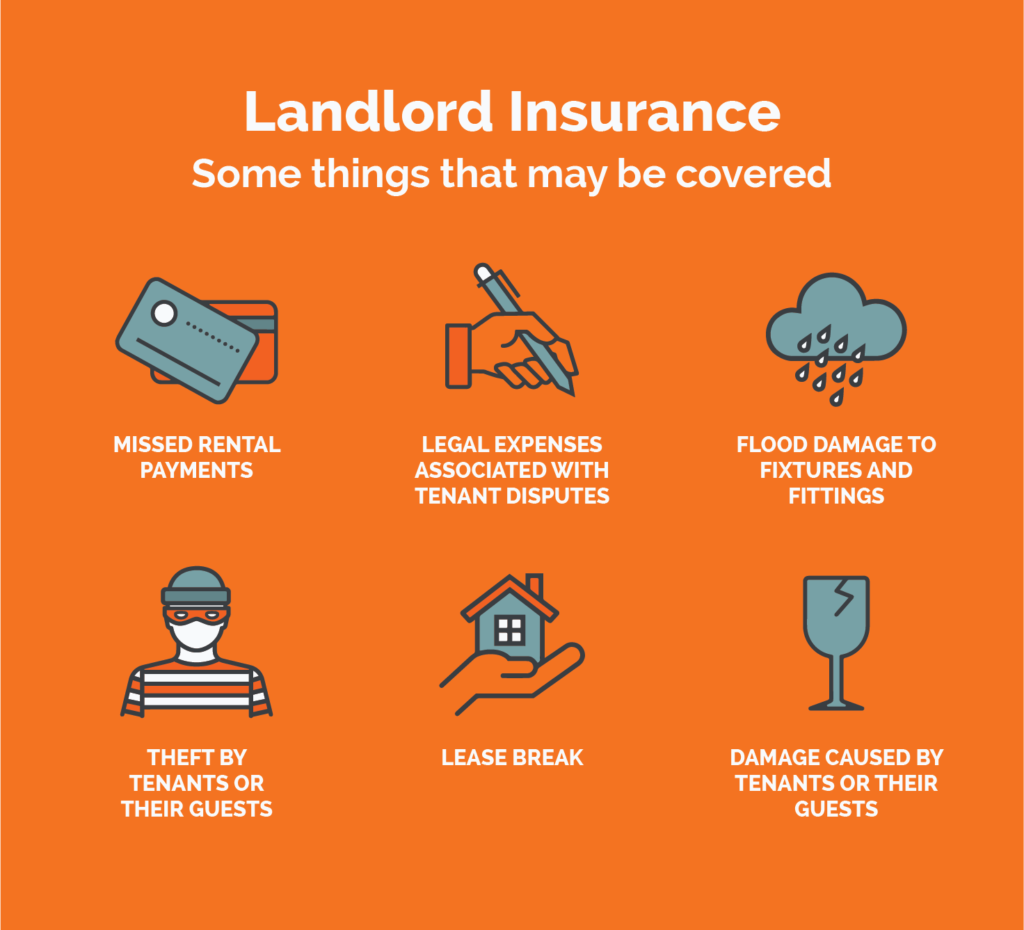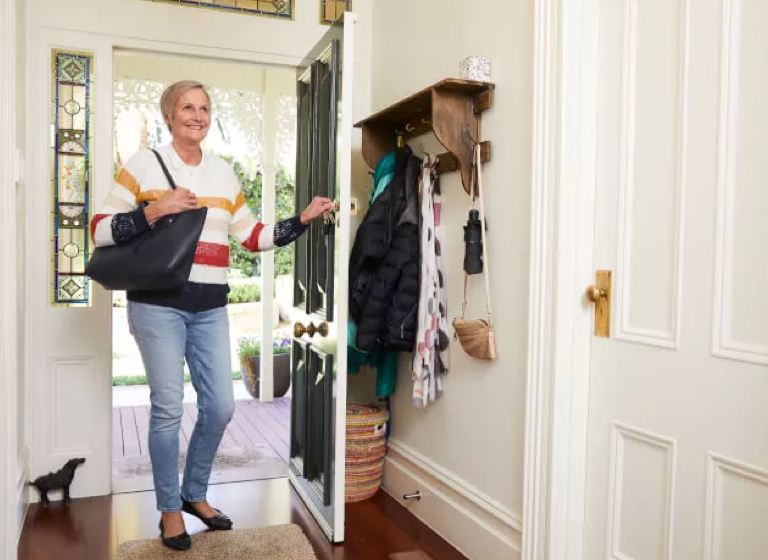Landlord Insurance in South Australia
Landlord Insurance in South Australia
*iSelect does not compare to all home and contents insurers in the market. The availability of policies may change from time to time. Not all policies made available from iSelect’s providers are compared by iSelect and due to commercial arrangements, area or availability, not all policies compared by iSelect will be available to all customers. See below for our range of home and contents insurers. Some policies are only available from iSelect’s call centre or online. Our advice on this website is of general nature and does not consider your situation or needs. Consider if any advice is appropriate for you before acting on it. Learn more.
Compare home and contents insurance the easy way*
Save time and effort by comparing a range of home and contents insurance policies with iSelect
What is Landlord Insurance?
Do I need Landlord Insurance?
Do I need Landlord Insurance if I have Building Insurance?
Does Landlord Insurance work differently in South Australia?
What isn’t covered by Landlord Insurance?
What should I consider when taking out Landlord Insurance?
Looking for Landlord Insurance?
What is Landlord Insurance?
Unless you’ve got a bachelor’s degree in crystal ball gazing, chances are you don’t know what’s around the corner. Like other types of insurance, Landlord Insurance aims to help ease the impact of the unexpected, but this time it’s for when you’re renting out a property.
Not to be confused with Home and Contents Insurance, Landlord Insurance doesn’t always necessarily cover physical loss. For instance, while Home or Building Insurance may help cover the costs of repairs to your home after an earthquake, your Landlord Insurance could help bridge the gap in lost rental income.1Budget Direct – Landlord Insurance
Keep in mind that it can be a bit hard to separate Home, Contents and Landlord Insurance — you might even actually see Landlords Insurance packaged with Home and Contents Insurance. Alternatively, Landlord Insurance could be an extra you can add to your existing policy. It depends on your Insurance Company.
What’s covered by your Landlord Insurance will depend on your policy. Plus, another type of Home and Contents Insurance you have out could cover some of these items. Depending on what you choose, you might see things like the below turning up in your Landlord Insurance cover:2As above, 3Virgin Money – Landlord Insurance, 4Forbes Advisor – Landlord Insurance In Australia: What You Need to Know
- Missed rent
- Damage caused by tenants or their guests (this can vary between accidental and malicious or intentional damage though)
- Theft by tenants or their guests
- Loss of rent if your property becomes uninhabitable or is vacant for a period
- Lease break (when a tenant vacates your property before their lease expires)
- Legal expenses associated with tenant disputes
- Flood damage to fixtures and fittings
- Replacement locks and keys
- Explosions
To get a better idea of what a policy covers, check the Product Disclosure Statement (PDS) or talk with the Insurance Provider.
Do I need Landlord Insurance?
While Landlord Insurance isn’t mandatory if you’re renting out a property, you might like to think of it as a way to help protect your investment. After all, you won’t regularly be there to make sure things are okay and, like the Spanish Inquisition, nobody expects the unexpected.
You may even have your own experiences as a landlord that, in hindsight, having Landlord Insurance at the time would have come in very handy. This could have been tenants breaking leases because of changes in their lives, new puppies chewing skirting boards or needing to get replacement locks after a break in at your rental property. Ultimately, Landlord Insurance can act as a kind of safety net to take some of the risk out of your property investment. Plus, you can actually claim your Landlord Insurance on your tax.5Australian Taxation Office – Rental expenses you can claim now

Do I need Landlord Insurance if I have Building Insurance?
Landlord Insurance and Building Insurance cover different things. Landlord Insurance tends to focus on instances like malicious or accidental damage caused by tenants or making up lost rent when a tenant can’t pay it. On the other hand, Building Insurance is more for repairs and replacement of your building if there’s a fire or similarly damaging event.
Just to keep you on your toes though, there can be some crossover with policies. For instance, your Building Insurance might have some Landlord Insurance included.
Does Landlord Insurance work differently in South Australia?
While Landlord Insurance Policies range across providers, along with your premiums, the Festival State doesn’t have any legislature or regulations uniquely affecting them. Instead, it really just comes down to the individual policies.
Having said that though, it could be worthwhile keeping an eye on the rental landscape in South Australia. For instance, as of November 2023, various rental reforms are before State Parliament. This includes changes to when you can refuse a tenant keeping a pet at the property and what conditions you can specify.6Consumer and Business Services – Review of SA’s renting laws If you’ve previously avoided needing to have Landlord Insurance that covers damage from pets by putting your foot down on any pet applications, you may need to consider looking for a more inclusive policy.
What isn’t covered by Landlord Insurance?
The devil is definitely in the details when it comes to Landlord Insurance. As mentioned, policies between insurers can vary quite a bit, especially when it comes to the things they will and won’t cover.
Most policies, though, share some common exclusions. These usually include:7Budget Direct – Your Home and Contents Insurance Policy Product Disclosure Statement, p54–55, 8ING – Home and Contents Insurance Product Disclosure Statement, p54–55, 9Virgin Money – Your Home and Contents Insurance Policy Product Disclosure Statement, p54–55
- Repeat offenders: If your tenant defaults multiple times under the same lease agreement or they intentionally damage or steal from your property under the same lease agreement, you may not be able to claim for it again.
- Four weeks hasn’t passed: ‘Four weeks’ may as well be the magic number for Landlord Insurance Policies. When you want to claim, you’ll need to have a signed written lease agreement in place for at least four weeks plus have collected rent from your tenant for four consecutive weeks too.
- Items insured under body corporate: You might not be able to insure and claim loss or damages to common property under your Landlord Insurance. Your body corporate could have insurance out for it though, so you might want to consider getting along to the next AGM then.10Budget Direct – Your Home and Contents Insurance Policy Product Disclosure Statement, p43, 11ING – Home and Contents Insurance Product Disclosure Statement, p43, 12Virgin Money – Your Home and Contents Insurance Policy Product Disclosure Statement, p43
Again, it’s worth checking the PDS on any Landlord Insurance Policy you’re considering. This is where you can usually find a list of everything it includes and excludes (within reason).
What should I consider when taking out Landlord Insurance?
As with any purchase, you want to do your due diligence with your potential Landlord Insurance. You might find that taking the time to think about your final decision could change what you get out of the policy.
Dive deep into policy inclusions
As we’ve mentioned, not every Landlord Insurance Policy is built the same. This means you’ll need to understand what your requirements are, like if you’re after a policy that specifically covers a rental in a strata building.
Remember to uphold your end of the bargain
Renting a property is a two-way street. Your tenants pay you to provide them with a habitable home that won’t fall down around their ears if they sneeze too loudly. So, if you skimp on maintenance and repairs, and the tenant damages a part of the property, you might not be able to claim it. This is because the problem could be traced back to your doing (or lack thereof).13Budget Direct – Your Home and Contents Insurance Policy Product Disclosure Statement, p55
Similarly, it can be worth being careful about the agreements you make with tenants, even if they are coming from the heart. Letting tenants backpay or pause rent can be a way you can help them through difficult financial times, but if you wanted to claim the loss of income, it’s likely to be a no-go from your insurer.14Forbes Advisor – Landlord Insurance In Australia: What You Need to Know
Look into liability insurance
Choosing a policy with public liability cover can extend your protection when renting out a property. If someone injures themselves at your rental, like tripping on an uneven driveway or worn set of stairs, public liability insurance could cover medical and legal expenses. This would be the case if it was your tenant or their guests.
Understand the property’s value
Whether you have an empire of rental properties or you’re just dipping your toe into property investment, thinking about the value of the property and the rent you earn on it could help you find a better policy match. When it comes to insurance, it’s always a balancing act with premiums and excess. So, being realistic about what you’re insuring could narrow down the playing field of potential policies for you.
Looking for Landlord Insurance?
If Landlord Insurance is sounding like a smart idea to you, we can help make the job of finding a policy a little bit easier. In fact, we’re ready to compare a range of providers and policies right now.* Just take our online comparison tool for a spin or give us a call on 13 19 20.

.svg)






